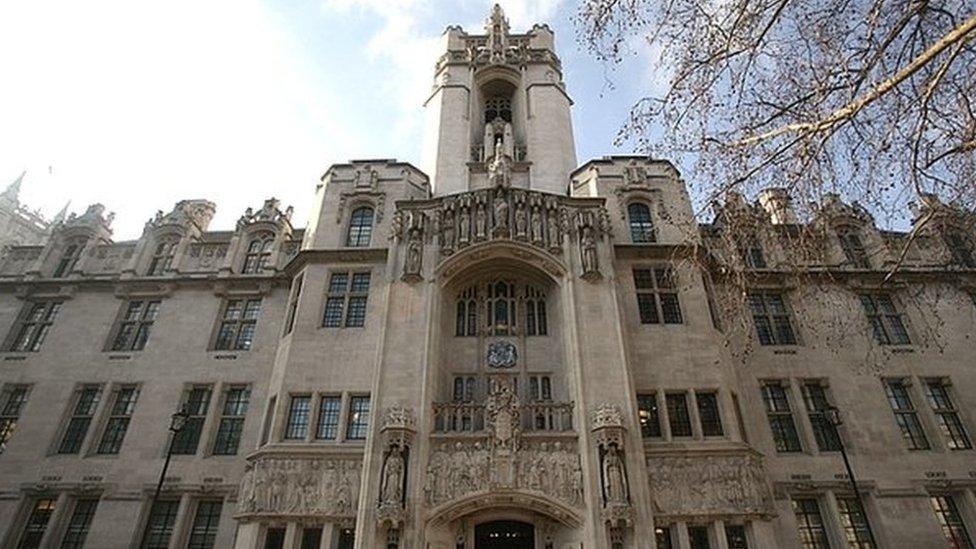Court backs woman in rent row with Birmingham council
- Published

Five Supreme Court Justices ruled a council was wrong to declare a woman "intentionally homeless" after she fed her children instead of paying rent
A woman who spent benefits on feeding her children rather than paying rent has a won a court case against a council that declared her intentionally homeless after she fell into arrears.
Terryann Samuels had been renting a home in West Bromwich but sought council property in neighbouring Birmingham due to a shortfall between her rent and housing benefit.
The city's council said she should have made do using other welfare payments.
The Supreme Court rejected that view.
Justices found the mother-of-four should not have had to use her non-housing benefits to cover rent because her other living expenses, including meeting her children's needs, were "reasonable".
The case centred on events from 2011 following the termination of Ms Samuels' private tenancy in West Bromwich where rent was £35 more than her housing benefit.
She made a homelessness application to Birmingham City Council, but the authority effectively told her arrears could have been avoided and she had the "flexibility" in her budget to cover her £700 rent.
Failure to be flexible, it said, amounted to her being intentionally homeless and therefore ineligible for council housing.
Quashing that decision, Lord Carnwath, who gave Wednesday's lead ruling, said: "I find it hard to see on what basis the finding of intentional homelessness could be properly upheld."
He said he hoped the council would now "accept full responsibility" for Ms Samuels and her family, who have been in temporary accommodation.
The Child Poverty Action Group charity said "no mother should have to see her children go short of essentials in order to pay rent".
Calling the ruling an important judgement for the future of the welfare system, Shelter added: "We're very pleased to see the court recognise that it's not lawful to expect families to rely on money they need for their basic living expenses to pay their rent when their housing benefit can't cover it."

Follow BBC West Midlands on Facebook, external, on Twitter, external, and sign up for local news updates direct to your phone, external.
- Published31 January 2019
